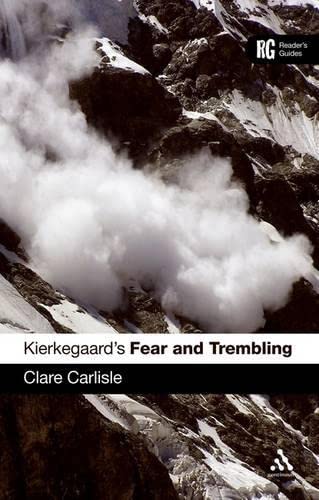Abrahamic Existentialism for the Everyday Scholar
Fear and Trembling, Soren Kierkegaard’s landmark work, is made accessible and concise to the modern scholar in Kierkegaard’s Fear and Trembling: A Reader’s Guide by Clare Carlisle. Kierkegaard, who sought to understand Abraham’s experience when God called him to sacrifice his son, discusses the “absurdity” of religious life in Fear and Trembling. Carlisle brings together the philosophical specificities and historical conditions of Kierkegaard’s work to present an informed commentary on Kierkegaard’s reconciliation of religious faith and ethical living.
Carlisle places Fear and Trembling in the context of greater Christian philosophical thought, offering a holistic and thorough study of the work along with its position in the prevailing philosophies of Kierkegaard’s and our own time. She begins by discussing Kierkegaard’s influences in writing Fear and Trembling, particularly Hegelian Philosophy, the quickly evolving ‘philosophical enlightenment’ of his time, and even his tumultuous relationship with fiance Regine Olsen. Carlisle then enters into her second section, Reading the Text, where she clarifies Kierkegaard’s metaphors and terminology, walking the reader step-by-step through his argument regarding Abraham’s ethics. Finally, she concludes her book by divulging the lasting cultural impacts of Kierkegaard’s work in a section titled Reception and Influence.
Clare Carlisle, Professor of Philosophy at King’s College, London, recently joined PLT Director Charles Marsh’s class, Anxiety: Religious and Theological Perspectives, to discuss Kierkegaard’s life and anxiety. Her lecture will be posted on the PLT website shortly ]for those interested in hearing her speak.
Reviews and endorsements of the publication include:
“Clare Carlisle’s patient and probing orchestration of the many levels and the smallest details of this thrillingly complex text promises to be as illuminating for Kierkegaard scholars as it is useful for those approaching it for the first time.”
— Stephen Mulhall, of University of Oxford, UK, and author of The Ascetic Ideal: Genealogies of Life-Denial in Religion, Morality, Art, Science, and Philosophy
For more information on the publication, click here.

